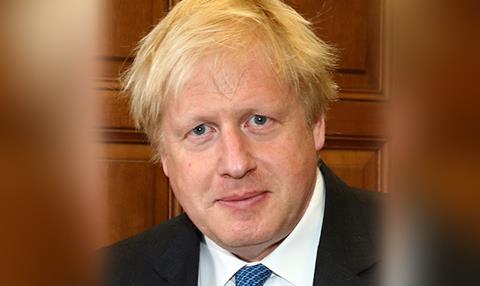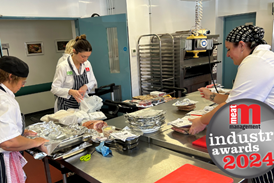Prime Minister Boris Johnson has received a wave of criticism from some of the major players in the food and meat industry after he said the UK needs to prepare for a no-deal Brexit.

Johnson said that there will be no more trade and security talks unless the EU adopts a “fundamental change of approach,” before stating that the UK needs to prepare for a no-deal Brexit when the transition period ends on the 1st January.
Speaking after an EU summit on Friday, which had previously been named as the deadline for a deal with the EU to be agreed, Johnson said: “Given that they have refused to negotiate seriously for much of the last few months, and given that this summit appears explicitly to rule out a Canada-style deal, I have concluded that we should get ready for January 1 with arrangements that are more like Australia’s based on simple principles of global free trade.
“Of course, we are willing to discuss the practicalities with our friends where a lot of progress has already been made on such issues as social security, and aviation, nuclear cooperation and so on. But for whatever reason it is clear from the summit that after 45 years of membership they are not willing – unless there is some fundamental change of approach – to offer this country the same terms as Canada.”
Reaction
Peter Hardwick, trade policy advisor for the British Meat Processors Association (BMPA), said: “BMPA is very concerned that any view that the British Meat Industry will ‘prosper mightily’ from a no-deal situation is misguided. A no-deal outcome with the UK trading with the EU on WTO terms with the application of the EU’s full MFN tariffs on meat imported into the EU from the UK would be devastating for meat processors and farmers alike. It is vital to understand that trade deals with markets thousands of miles away can never replace our trade with the EU. Developing trade outside the EU remains important and provides excellent opportunities to grow trade but it cannot substitute a market across a small stretch of water into which we can deliver fresh products in flexible volumes and on a daily basis, competing directly with EU fresh meat suppliers.
"Tariffs will not only make UK meat exports into the EU uncompetitive but also it will add even further complexity to the already daunting bureaucracy and additional costs exporters will face in terms of export health certification, customs declarations and border checks.
"It is vital that both sides, the UK and the EU make every effort to avoid this and focus on reaching a deal in which both sides will need to compromise. The alternative will be catastrophic.”
Katie Doherty, chief executive of the International Meat Trade Association (IMTA), said: “We have been running an intensive programme of briefing sessions for members over the last few months to assist meat importers and exporters in preparing for the end of the transition period where irrespective of a deal there will be requirements for customs declarations, veterinary certification and vet checks.
“Tariffs in both directions would be prohibitive in the event of no deal and it is crystal clear that the food industry needs a deal owing to the importance of two-way trade to our industry, particularly that with our neighbouring countries in the EU. The EU and UK had set out in their political declaration an aspiration to have no tariffs or quotas on UK and EU goods in either direction and industry on both sides of the channel need that.
“Industry has been doing all it can to prepare for the 1st of January, but we need the government to deliver a deal as a core part of that preparation.”
Ian Wright CBE, chief executive of the Food and Drink Federation (FDF), said: “The Prime Minister’s statement signals that we are heading into very dangerous territory. The perils of a no-deal exit for GB food and drink manufacturing remain as real as ever.
“We need leaders on both sides to find a way past the current impasse in order to progress talks. In the event of a no-deal Brexit, shoppers will – literally – pay a heavy price. Imported food and drink from the EU will face eye- watering tariffs averaging 18% kick starting price rises. At the same time border delays and disruption will bring further costs which will not be subsumed by industry. A no-deal outcome is bad for food and drink businesses, bad for food security, and bad for every household in Great Britain.”
This story was originally published on a previous version of the Meat Management website and so there may be some missing images and formatting issues.





